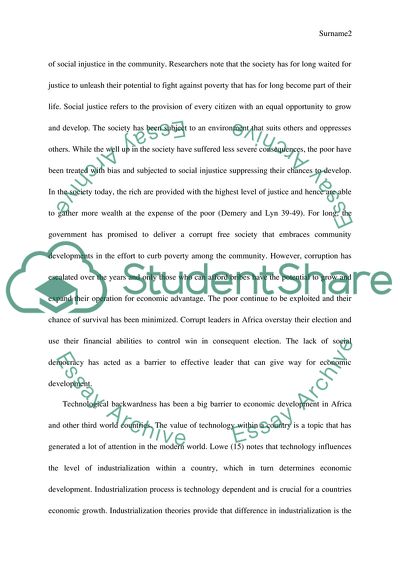Cite this document
(Poverty because of Urbanization in African Essay Example | Topics and Well Written Essays - 2000 words, n.d.)
Poverty because of Urbanization in African Essay Example | Topics and Well Written Essays - 2000 words. https://studentshare.org/social-science/1877193-poverty-in-africa
Poverty because of Urbanization in African Essay Example | Topics and Well Written Essays - 2000 words. https://studentshare.org/social-science/1877193-poverty-in-africa
(Poverty Because of Urbanization in African Essay Example | Topics and Well Written Essays - 2000 Words)
Poverty Because of Urbanization in African Essay Example | Topics and Well Written Essays - 2000 Words. https://studentshare.org/social-science/1877193-poverty-in-africa.
Poverty Because of Urbanization in African Essay Example | Topics and Well Written Essays - 2000 Words. https://studentshare.org/social-science/1877193-poverty-in-africa.
“Poverty Because of Urbanization in African Essay Example | Topics and Well Written Essays - 2000 Words”. https://studentshare.org/social-science/1877193-poverty-in-africa.


